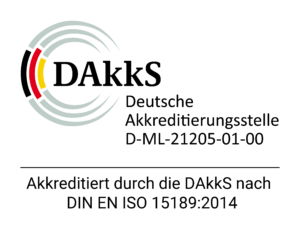Confirmation rate (PPV) of screening for sex chromosomal abnormalities with the Harmony Test depends on the method of confirmatory testing
In a current study in collaboration with Prof. Oliver Kagan (University Hospital Tübingen) and Francesca Grati (TOMA Advanced Biomedical Assays SpA, Impact Lab Group), published in Prenatal Diagnosis in August 2020, the positive predictive value (PPV) in screening for gonosomal aneuploidies (sex chromosomal aneuploidies [SCA]) was determined.
More than 90,000 pregnant women were examined by Cenata for an XY-linked disorder using the Roche/Ariosa Harmony ® Test. In 351 (0.53%) of 66,203 evaluable cfDNA tests for SCA, an abnormal result was obtained. The study population consisted of 144 pregnant women who had opted for prenatal karyotyping using AC or CVS or a postnatal examination. Amniocentesis was performed in 78 cases and chorionic villus sampling in 34 cases. Postnatal karyotyping was performed in 32 pregnancies.
38.9% of the high risk cfDNA tests for SCA were confirmed by CVS / AC or postnatal examination. In particular, the confirmation rate for monosomy X (MX) was significantly dependent on the diagnostic test method used: While CVS confirmed 54.6% of the abnormal cfDNA tests for MX, only 17.1% were confirmed with AC (chi-square test p = 0.014).
The confirmation rate or the PPV of an abnormal cfDNA result for SCA is thus significantly lower than for trisomy 21, 18 or 13. This is especially the case for a fetal monosomy X. The method of choice for examining the fetal karyotype should, especially in case of an increased risk of monosomy X, be amniocentesis and not chorionic villus sampling.
Read the full article here.
Confirmation rate (PPV) of screening for sex chromosomal abnormalities with the Harmony Test depends on the method of confirmatory testing
In a current study in collaboration with Prof. Oliver Kagan (University Hospital Tübingen) and Francesca Grati (TOMA Advanced Biomedical Assays SpA, Impact Lab Group), published in Prenatal Diagnosis in August 2020, the positive predictive value (PPV) in screening for gonosomal aneuploidies (sex chromosomal aneuploidies [SCA]) was determined.
More than 90,000 pregnant women were examined by Cenata for an XY-linked disorder using the Roche/Ariosa Harmony ® Test. In 351 (0.53%) of 66,203 evaluable cfDNA tests for SCA, an abnormal result was obtained. The study population consisted of 144 pregnant women who had opted for prenatal karyotyping using AC or CVS or a postnatal examination. Amniocentesis was performed in 78 cases and chorionic villus sampling in 34 cases. Postnatal karyotyping was performed in 32 pregnancies.
38.9% of the high risk cfDNA tests for SCA were confirmed by CVS / AC or postnatal examination. In particular, the confirmation rate for monosomy X (MX) was significantly dependent on the diagnostic test method used: While CVS confirmed 54.6% of the abnormal cfDNA tests for MX, only 17.1% were confirmed with AC (chi-square test p = 0.014).
The confirmation rate or the PPV of an abnormal cfDNA result for SCA is thus significantly lower than for trisomy 21, 18 or 13. This is especially the case for a fetal monosomy X. The method of choice for examining the fetal karyotype should, especially in case of an increased risk of monosomy X, be amniocentesis and not chorionic villus sampling.
Read the full article here.


